How to Apply for a Loan in South Africa
Applying for a loan in South Africa may appear challenging, but it doesn’t have to be. Whether you’re planning to buy a home, start a business, or manage unforeseen expenses, knowing the loan application process is essential. Ready to take the first step towards securing a loan in South Africa?
Arcadia Finance helps you in the search of loans from different banks and lenders. Fill in a free application and get loan offers from up to 10 lenders. We work with well-known, trusted and NCR licensed lenders in South Africa.
Different Types of Loans
When applying for a loan in South Africa, it’s important to understand the different types of loans available to select the one that best meets your needs. Here are some of the most common loan types:
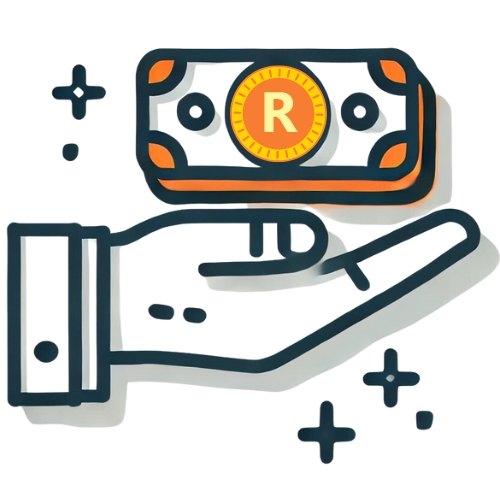
Personal Loans
Personal loans are flexible and can be used for a range of purposes, such as consolidating debt, covering unexpected expenses, or making a major purchase. Typically, these loans are unsecured, meaning you don’t need to provide collateral. The amount you can borrow and the interest rate you’ll receive depend on your credit score and financial history.
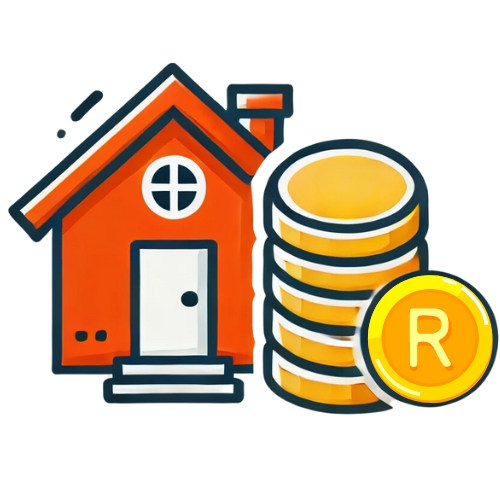
Home Loans
Home loans, or mortgages, are specifically for buying property. They generally offer lower interest rates compared to other loan types because the property serves as collateral. Home loans can be complex, with options like fixed-rate, variable-rate, and interest-only mortgages. It’s important to fully understand the terms and conditions before committing to a home loan.

Business Loans
Business loans assist entrepreneurs in starting, growing, or managing their businesses. These loans can be used for purposes such as purchasing equipment, hiring staff, or managing cash flow. Business loans can be secured or unsecured, and lenders will usually review the business’s financial health, credit history, and business plan before approving the loan.
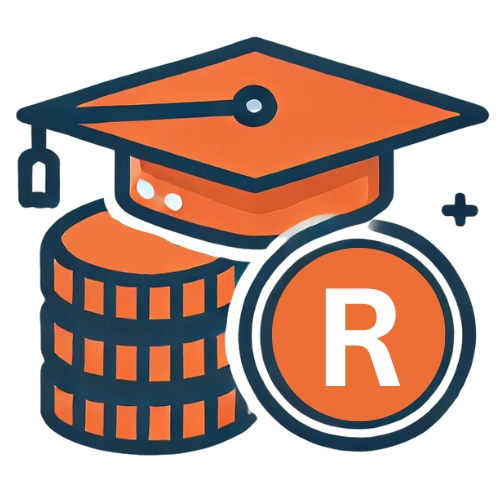
Student Loans
Student loans are designed to help cover the costs of higher education, including tuition, books, and living expenses. In South Africa, these loans can be obtained from both private lenders and government institutions. They often feature more favourable terms, such as lower interest rates and deferred repayment options until after graduation.
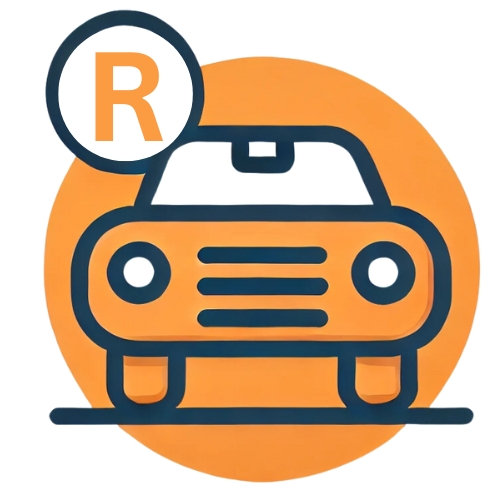
Car Loan
Car loans are intended for financing the purchase of a vehicle. These loans are usually secured by the car itself, which means the lender can repossess the vehicle if you miss payments. Car loans typically come with fixed interest rates and repayment terms, making it easier to manage monthly payments.
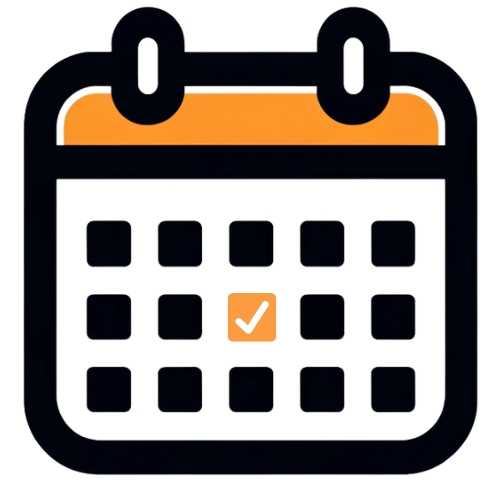
Payday Loans
Payday loans are short-term loans designed to address immediate, small-scale financial needs until your next payday. They often have high interest rates and fees, making them a more costly borrowing option. Due to their high cost, payday loans should be approached with caution and used only as a last resort.
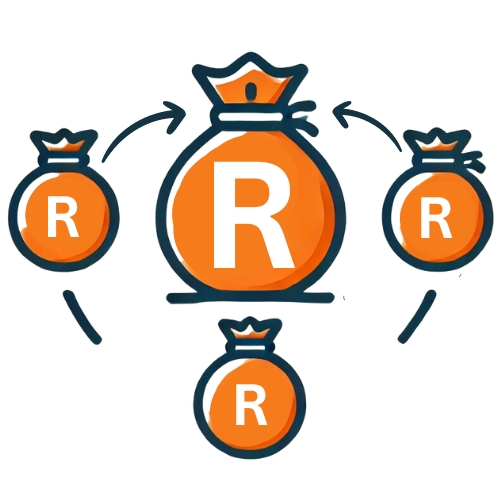
Consolidation Loans
Consolidation loans allow you to combine multiple debts into one loan with a single monthly payment, often at a lower interest rate. This can simplify debt management and potentially lower your overall interest payments. However, it’s important to ensure the terms of the consolidation loan are favourable and that you don’t accumulate additional debt in the process.
Preparing Your Documentation
When applying for a loan in South Africa, having the right documentation ready can help streamline the process and enhance your chances of approval. Here’s a detailed list of the documents you generally need to prepare:
Proof of Identity
Proof of identity is essential for any loan application. It allows the lender to verify your identity. Common forms of identification include:
- South African ID card or passport
- Driver’s licence
- Birth certificate (for minors or additional identification)
Bank Statements
Bank statements help lenders evaluate your financial health and spending habits. Generally, you will need to provide:
- Bank statements for the last three to six months
- Detailed records of transactions, especially those related to your income and expenses
Proof of Income
Lenders need to confirm that you have a stable income to ensure you can make regular repayments. Proof of income may include:
- Recent payslips (typically the last three months)
- Bank statements showing salary deposits
- Employment contract or a letter from your employer
- For self-employed individuals, a letter from an accountant or recent financial statements
Proof of Residence
Lenders often require proof of your residential address to confirm your living situation. Acceptable documents include:
- Utility bills (water, electricity, or gas) dated within the last three months
- Lease or rental agreement
- Recent bank statement or credit card statement
- Municipal rates and taxes invoice
Credit Report
While not always required for submission, having a copy of your credit report can be beneficial. It provides the lender with an overview of your credit history and helps assess your creditworthiness. You can obtain your credit report from major credit bureaus like TransUnion or Experian.
Additional Documents
Depending on the type of loan and the lender, you may need to provide additional documentation. Here are some examples:
For Home Loans:
- Property sale agreement
- Proof of deposit
- Property valuation report
For Business Loans:
- Business plan
- Financial statements (balance sheet, income statement)
- Tax clearance certificate
- Proof of business registration
For Student Loans:
- Proof of enrolment or acceptance at an educational institution
- Breakdown of course fees
- Parent or guardian’s financial information (if applicable)
Special Circumstances
If you have unique circumstances, such as being newly employed, retired, or receiving income from various sources, you may need to provide extra documentation to clarify your financial situation.
About Arcadia Finance
Effortlessly secure your loan with Arcadia Finance. Enjoy zero application fees and choose from 10 respected lenders, all adhering to South Africa’s National Credit Regulator standards. Benefit from a smooth process and dependable options tailored to your financial requirements.
Choosing the Right Lender
Choosing the right lender is a crucial step in the loan application process, as it can significantly affect your loan’s terms, interest rates, and overall experience. Here are key factors to consider when selecting a lender in South Africa:
Banks
Banks are established financial institutions offering a broad range of loan products. They are known for their stability and comprehensive services. When considering a bank as your lender, review the interest rates they offer, which are often competitive, especially if you have a strong credit score. Assess the loan terms, as banks provide various options for repayment periods that can align with your financial situation. Banks may also offer additional benefits such as loan protection insurance or discounted rates for existing customers. Established banks generally have a solid reputation for reliability and customer service, providing reassurance and peace of mind.
Credit Unions
Credit unions are member-owned financial cooperatives that offer loans and other financial services. They often provide favourable terms and a more personalised approach. As a member, you might benefit from lower interest rates and fees compared to traditional banks. Credit unions typically focus on serving the local community, which can be advantageous if you prefer a more tailored service. Profits are usually returned to members through reduced fees or higher savings rates. However, membership may be limited based on factors like employment, location, or affiliation with certain groups, so ensure you meet the eligibility requirements.
Online Lenders
Online lenders have become increasingly popular due to their convenience and speed. They often offer quick approval processes and competitive rates. The major advantage is the ease of applying from home, with typically faster approval times. While online lenders can offer competitive rates, it’s important to compare them with traditional institutions. Ensure the lender provides clear terms and conditions, and check reviews and ratings to assess their reputation. Additionally, evaluate the quality and availability of customer support, as you may need assistance throughout the loan process.
How to Apply for a Loan with Arcadia Finance
Applying for a loan at Arcadia Finance is straightforward and accessible. Start your application by visiting our website, where our dedicated and experienced team is available to assist you with any inquiries you might have throughout the process. We will require some basic information from you, including details about your income and expenses, as well as your desired loan amount and preferred repayment term. After submitting your application, our team will promptly review the details and respond with a decision as soon as possible.
Tips for a Successful Loan Application
Applying for a loan is a significant step towards reaching your financial goals. Here are some essential tips to help maximise your chances of approval:
- Improve Your Credit Score
Lenders consider your credit score a vital factor. To keep it in good standing, ensure you pay your bills on time, work on reducing outstanding debts, and regularly check your credit report for any errors or discrepancies.
- Reduce Your Debt-to-Income Ratio
A lower debt-to-income ratio suggests you have more disposable income. Increase your income if possible and focus on paying off high-interest debts to improve this ratio.
- Provide Accurate Information
Ensure that all information on your application is correct and up-to-date. Double-check personal details, employment information, and financial data to avoid any inaccuracies.
- Prepare Comprehensive Documentation
Gather the necessary documents in advance, including proof of identity, proof of income, and recent bank statements. Having these ready can help streamline the application process.
- Choose the Right Lender
Research and compare lenders to find one that offers competitive interest rates, suitable loan terms, and has a good reputation.
- Apply for the Right Amount
Calculate the exact amount you need and apply for that specific sum. Be realistic about what you can afford to repay.
- Respond Promptly to Lender Inquiries
If the lender requests additional information or clarification, respond quickly to speed up the approval process.
Conclusion
Applying for a loan in South Africa doesn’t have to be overwhelming. By understanding the process, improving your credit score, reducing your debt-to-income ratio, and preparing accurate and comprehensive documentation, you can greatly increase your chances of approval. Choosing the right lender and applying for the appropriate loan amount also helps streamline the process. Don’t forget to respond promptly to any inquiries from the lender to speed up your application. With these tips, you’re well-prepared to navigate the loan application process successfully. Ready to take the next step in your financial journey?
Frequently Asked Questions
To qualify for a loan in South Africa, you need to be at least 18 years old, hold a valid South African ID, and provide proof of income, such as payslips or bank statements. Additionally, you’ll need to show proof of residence and maintain a good credit history. A lower debt-to-income ratio can also improve your chances of approval.
The easiest way to get a loan in South Africa is to apply online through reputable banks or financial institutions. Prepare your documents, check your credit score, and ensure your application is complete. Many online lenders offer quick approval, sometimes within the same day.
Capitec Bank, First National Bank (FNB), and Nedbank are known for their straightforward loan application processes in South Africa. They offer competitive rates and efficient approval times. Comparing terms and maintaining a good credit score can help expedite the process.
Personal loans from online lenders are the easiest to get immediately in South Africa. These loans often have quick approval times, sometimes within minutes. Payday loans and microloans are also options but come with higher interest rates. Ensure your credit score is good and your documents are ready for a faster process.
Your credit score is a crucial factor as it reflects your creditworthiness. A higher credit score improves your chances of loan approval and can lead to better interest rates. Conversely, a low credit score might result in rejection or higher interest rates.

